How to deal with anger and frustration during recovery

Understanding the Journey of Emotional Recovery
Recovery from addiction presents unique emotional challenges that can manifest as anger and frustration. These emotions, if not managed effectively, can jeopardize progress and lead to relapse. Individuals in recovery often grapple with heightened emotions as they rebuild their lives, navigate stressors, and address unresolved trauma. Understanding how to manage anger constructively is crucial for maintaining sobriety and achieving long-term positive outcomes in recovery.
The Role of Anger in Recovery
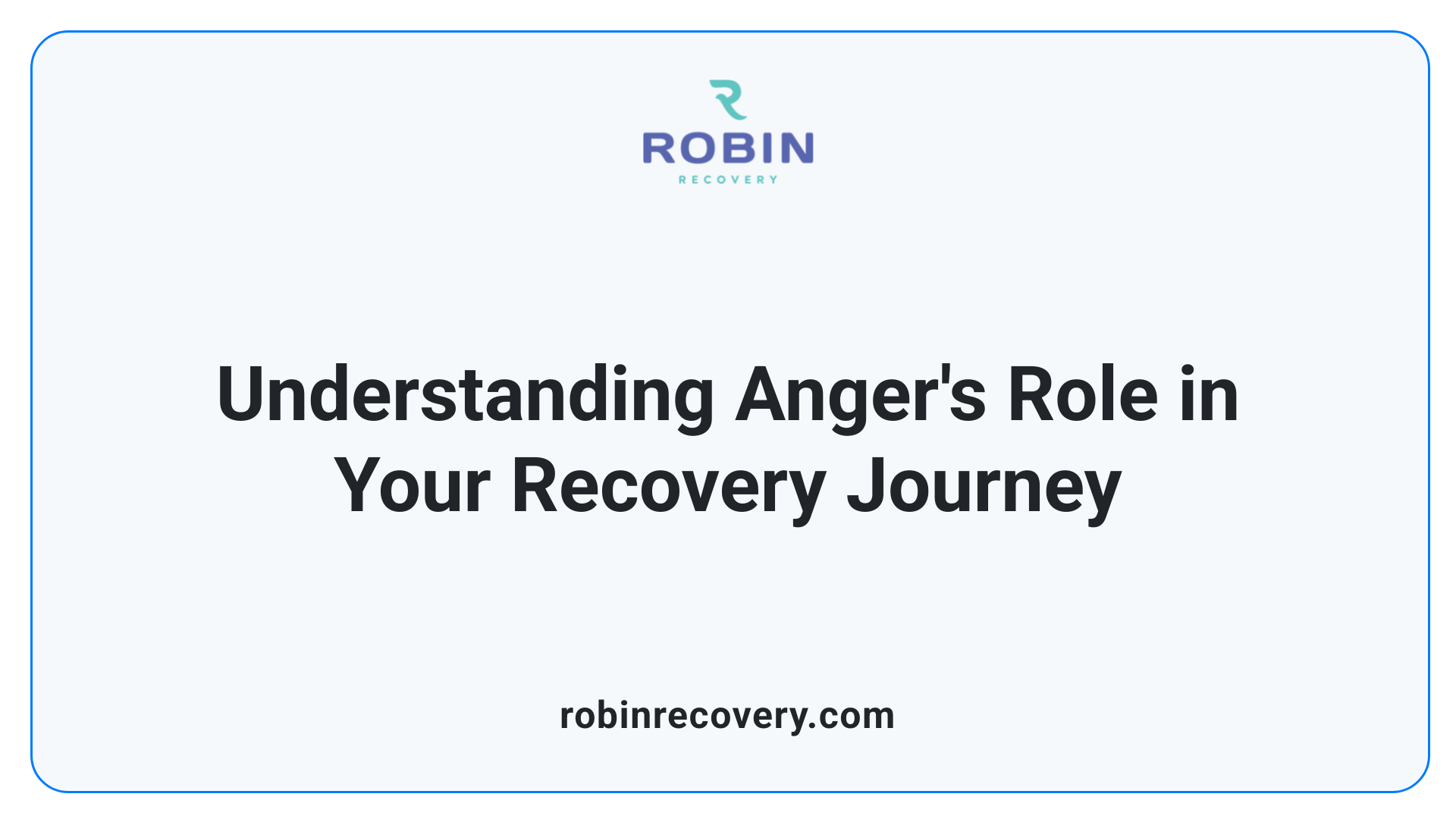
Is anger a part of the recovery process?
Yes, anger often surfaces during the recovery process. It is a valid and natural emotion for individuals grappling with the challenges of addiction. Rather than suppressing anger, acknowledging and understanding it can serve as a catalyst for personal growth and healing. While anger can indicate underlying pain or frustration, it is critical to manage it in a healthy way to avoid negative outcomes like relapse.
Emotional challenges during recovery
Recovery is rife with emotional difficulties, including anger, frustration, and guilt. Each of these emotions can complicate the journey toward sobriety. For example, withdrawal symptoms can heighten irritability and anger. Individuals may also confront feelings related to past behaviors or unresolved trauma. Effective anger management is essential, as uncontrolled anger can lead to impulsive decisions and relapse.
Effective Strategies for Managing Anger
To assist in healthy anger management, individuals can utilize various techniques such as:
- Mindfulness and Meditation: These practices promote emotional awareness and calmness.
- Exercise: Physical activity can help release pent-up frustrations and improve mood.
- Support Groups: Engaging with others who understand the struggles of recovery can provide essential emotional support.
- Journaling: Writing about feelings can clarify emotions and help track progress.
Healthy management of anger can reduce the risk of relapse and improve interpersonal relationships. Understanding and addressing the emotional facets of recovery allows individuals to navigate their feelings effectively.
Strategies for Managing Anger and Frustration
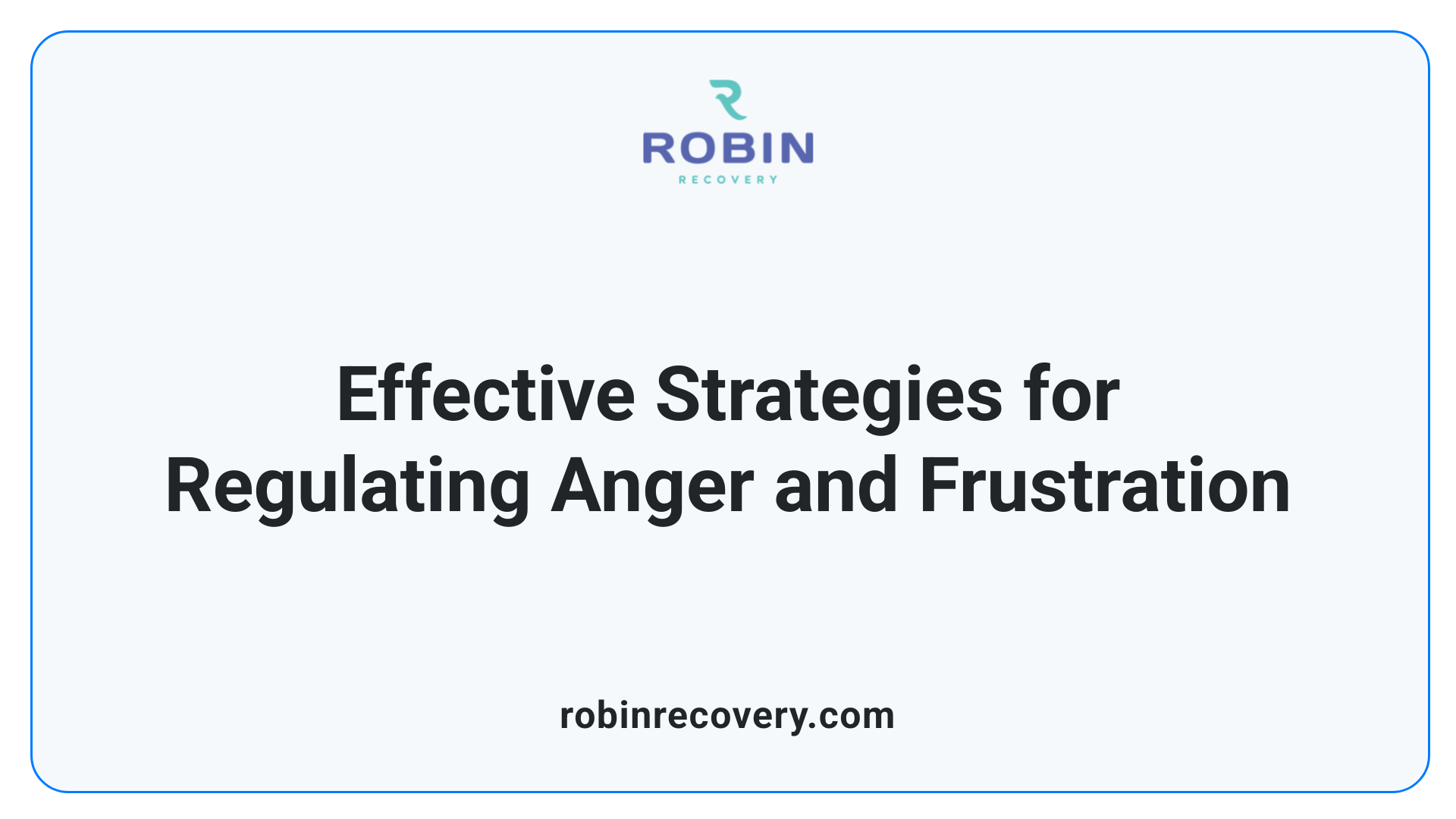
What are healthy ways to release anger and frustration?
Releasing anger and frustration healthily involves several effective strategies.
One method is to practice relaxation techniques such as deep-breathing exercises, visualization, or engaging in physical activities like walking or running, which can significantly reduce stress. Exercise is particularly effective as it releases endorphins, improving mood and providing a positive outlet for built-up tension.
Another beneficial approach is to express your feelings clearly and calmly using "I" statements. This promotes better understanding and reduces defensiveness during conversations, allowing for constructive discussions instead of heated arguments. Taking breaks during stressful situations can also help; stepping away momentarily allows for regrouping and approaching challenges with a clearer mind.
Additionally, focusing on solutions rather than the sources of anger is crucial. In moments of frustration, practicing forgiveness—both towards yourself and others—can relieve feelings of resentment and improve emotional well-being. Accepting that you cannot control every situation helps manage frustrations effectively.
Here’s a summary table of strategies for managing anger and frustration:
StrategyDescriptionBenefits Relaxation Techniques Deep-breathing, visualization, physical activities Reduces stress, improves mood Expressing Feelings Using 'I' statements to convey emotions Enhances communication, reduces defensiveness Taking Breaks Temporarily stepping away from stressful situations Clears mind, reduces emotional intensity Focusing on Solutions Concentrating on actionable outcomes instead of problems Promotes proactivity, reduces feeling of victimhood Practicing Forgiveness Letting go of grudges and resentment Improves relationships, enhances emotional peace
Engaging in these strategies can facilitate healthier emotional regulation during recovery, ultimately supporting sobriety.
The Connection Between Emotions and Substance Abuse
Emotional Roots of Addiction
Emotions play a significant role in addiction, where feelings of anger, guilt, and shame can act as catalysts for substance abuse. Individuals often struggle with unresolved emotional issues from the past, such as trauma or anxiety, which can heighten feelings of anger and frustration during recovery. As these individuals work through their emotional disturbances, the need for effective coping strategies becomes clear.
Impact of Anger on Substance Use
Anger, when unmanaged, poses a significant risk for relapse. Not only can it lead to impulsive decisions regarding substance use, but it can also negatively impact physical and mental health. Anger can manifest as a reaction to stressors typical in recovery, such as rebuilding relationships or coping with loss. Techniques such as cognitive-behavioral therapy (CBT) and mindfulness practices can empower individuals to recognize their anger triggers and redirect that energy into constructive outlets, helping maintain long-term sobriety.
Cognitive and Behavioral Techniques
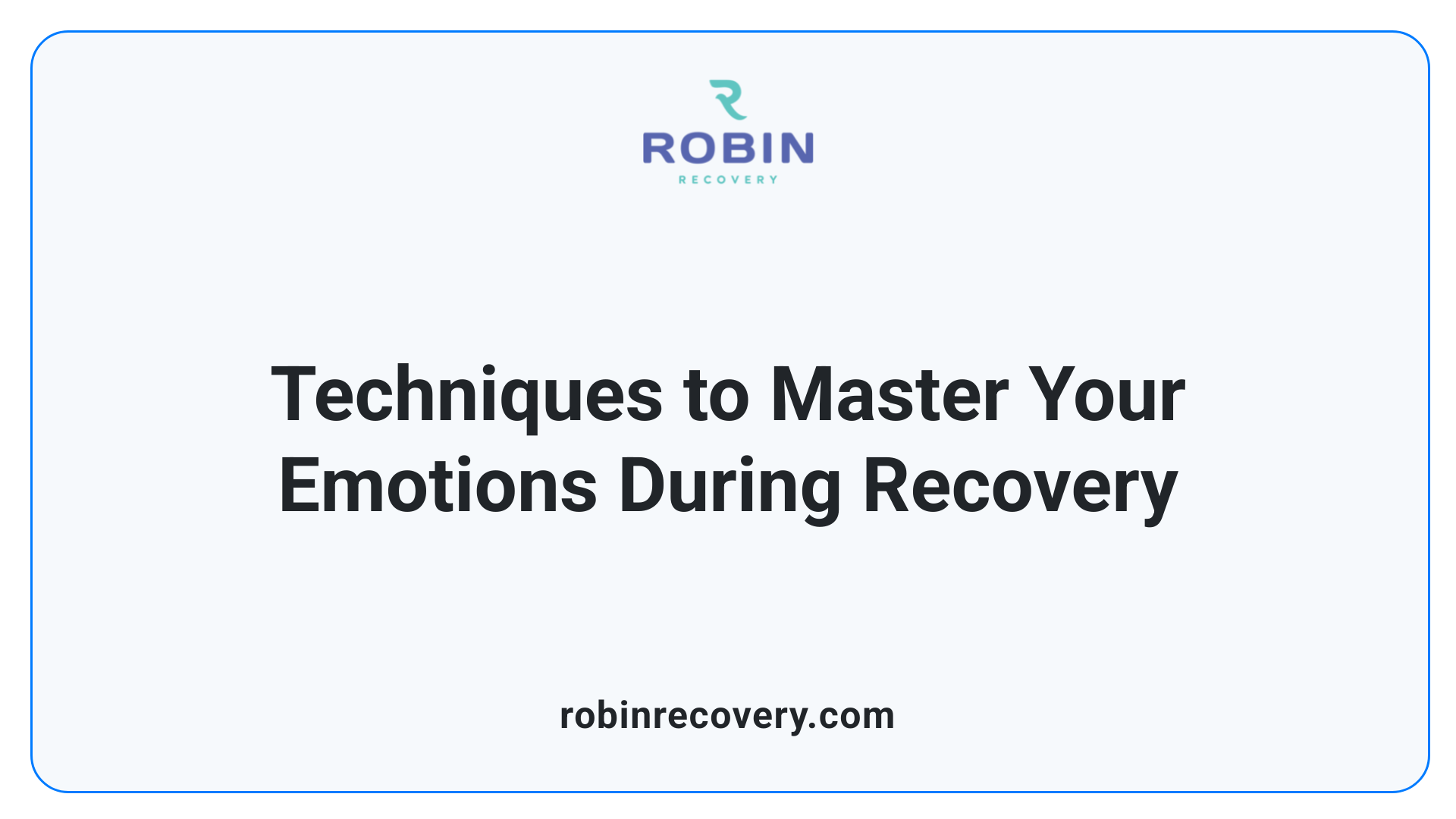
How can I control my anger during recovery?
Controlling anger during recovery is crucial for maintaining sobriety, as unmanaged anger can significantly increase the risk of relapse. Addiction often intensifies emotional issues such as trauma, anxiety, and depression, complicating individuals’ abilities to cope with feelings of anger.
Strategies for Anger Management
Effective anger management strategies during recovery involve a variety of practices that promote emotional regulation, including:
- Exercise: Engaging in physical activity releases endorphins, improving mood and reducing stress.
- Deep-breathing exercises: These can help calm the physiological effects of anger, leading to better emotional control.
- Progressive muscle relaxation: This technique allows individuals to release tension and focus on relaxation.
- Mindfulness meditation: Practicing mindfulness helps maintain presence in the moment, enabling individuals to navigate their emotions without becoming overwhelmed.
Therapy’s Role in Emotional Regulation
Both Cognitive Behavioral Therapy (CBT) and Dialectical Behavior Therapy (DBT) play essential roles in anger management. CBT focuses on identifying negative thought patterns that lead to anger, providing tools to replace these thoughts with healthier responses. DBT, on the other hand, combines cognitive and behavioral strategies aimed at emotional regulation and interpersonal effectiveness.
Ongoing support through aftercare programs and resources like SAMHSA’s National Helpline (1-800-662-HELP) can further assist those in recovery with ongoing emotional challenges, allowing them to develop and maintain effective coping strategies.
Building Resilience: Frustration Tolerance
Understanding frustration in recovery
Frustration is a frequent challenge for individuals navigating addiction recovery. It often arises from unmet expectations, such as strained relationships, legal complications, and financial issues. These can create feelings of helplessness or unfair treatment, which heighten anxiety and anger. The early stages of recovery are particularly intense, as unresolved emotional issues resurface and individuals seek to adapt to a new lifestyle without substance use. Recognizing these triggers is crucial for effective management, allowing individuals to confront feelings instead of suppressing them.
Techniques to improve frustration tolerance
- Mindfulness Practices: Engage in meditation or deep-breathing exercises to increase awareness of your emotional responses and cultivate calmness.
- Set Realistic Expectations: Acknowledge that recovery is a gradual process, allowing for small victories and the understanding that setbacks can occur.
- Healthy Distraction: Participate in activities like reading, exercising, or engaging in creative hobbies to divert attention from frustration.
- Develop Positive Self-Talk: Counter negative thoughts with affirmations that reinforce your strength and resilience.
- Utilize Support Networks: Reach out to therapists or support groups for guidance and encouragement when faced with challenges.
By employing these techniques, individuals can improve their frustration tolerance, leading to better management of anger and a healthier approach to recovery.
Recognizing and Addressing Triggers
Identifying Personal Triggers
Recognizing personal triggers for anger during recovery is essential for maintaining emotional stability. Common triggers can include:
- Unresolved Trauma: Past traumatic experiences can resurface, intensifying anger.
- Relationship Issues: Strained relationships can provoke feelings of resentment and frustration.
- Stress: High-stress situations often lead to feeling overwhelmed, which can trigger anger.
- Feelings of Injustice: Perceptions of being treated unfairly can ignite anger towards oneself or others.
By identifying these triggers, individuals can prepare themselves for situations that might provoke anger.
Strategies to Mitigate Triggers
Implementing effective strategies can help manage anger triggers. Here are several methods:
- Mindfulness Practices: Techniques like meditation and deep breathing can ground individuals during emotional upheavals, enabling better responses to triggers.
- Physical Exercise: Engaging in regular physical activity can alleviate stress and pent-up anger, providing a constructive outlet.
- Journaling: Writing about feelings can help process and clarify emotions, potentially reducing anger levels.
- Support Groups: Sharing experiences with others in recovery can foster accountability and provide new coping strategies.
- Acceptance: Recognizing and accepting things that cannot be changed can significantly decrease frustration and anger.
By integrating these strategies into daily routines, individuals can effectively reduce the impact of anger triggers while promoting long-term recovery.
The Importance of Professional and Peer Support
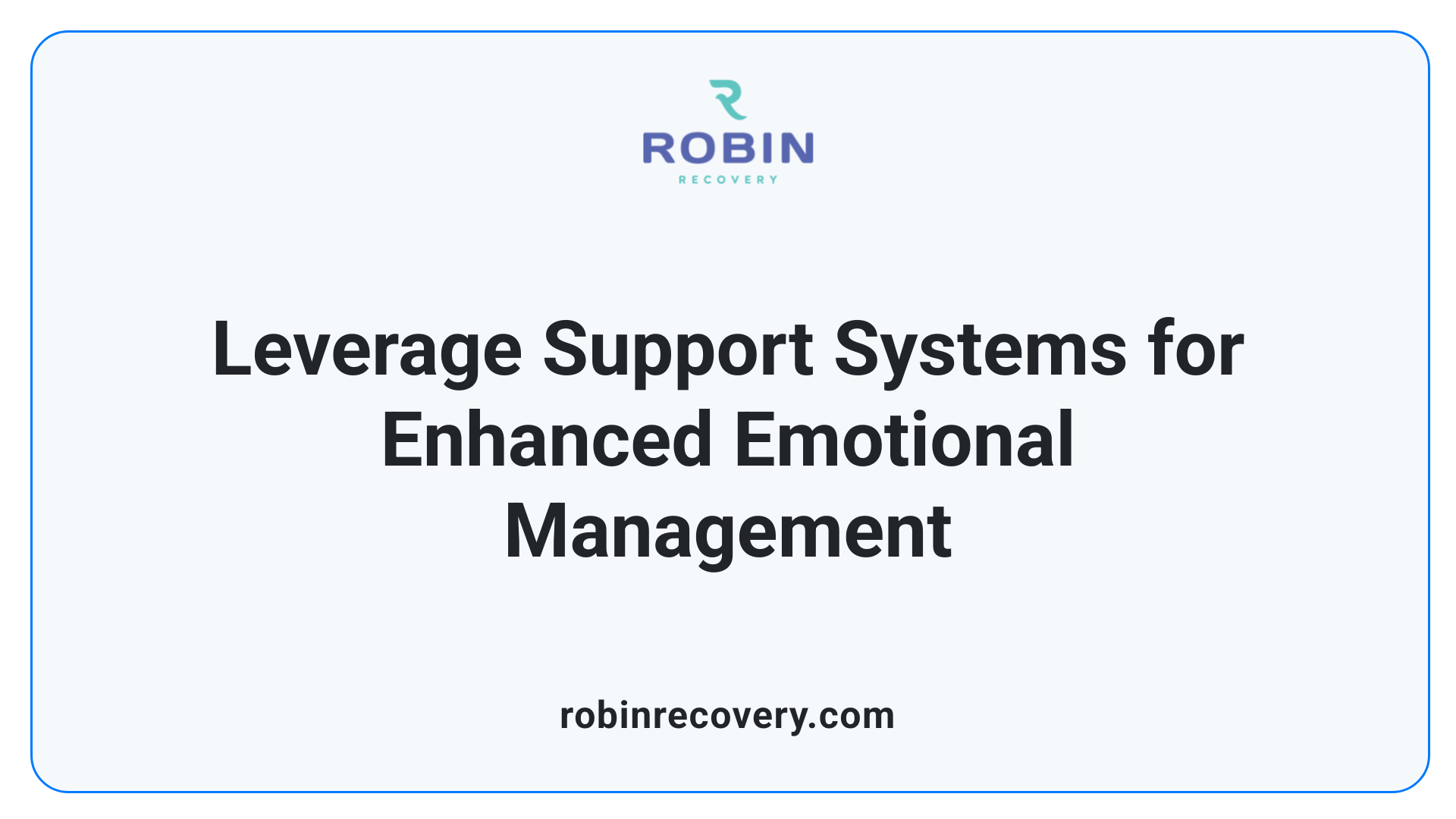
Role of support systems
Support systems play a significant role in managing anger and frustration during addiction recovery. Both professional therapy and peer support groups provide individuals with essential tools and techniques for emotional regulation. Therapists can offer structured guidance through methods such as cognitive-behavioral therapy (CBT), which helps patients identify negative thought patterns associated with anger. By addressing these thoughts directly, individuals gain powerful coping strategies to manage their emotional responses.
Peer support groups also foster community and understanding. Being in the company of others who share similar struggles can alleviate feelings of isolation and promote accountability. Participants often share their experiences and coping strategies, enhancing the collective knowledge and support available within the group.
Resources for anger and frustration management
A variety of resources are available for individuals seeking to manage anger and frustration during recovery. Here are some effective strategies and resources:
Strategy Description Benefits 1. Relaxation Techniques Practices like deep breathing and mindfulness help soothe anger and increase awareness. Reduces physiological tension. 2. Therapeutic Support Engaging with mental health professionals for structured support. Offers tailored emotional guidance. 3. Support Groups Participation in group therapy or support networks facilitates shared experiences. Provides community and accountability. 4. Physical Exercise Regular activity releases endorphins, improving mood and reducing anger. Enhances emotional wellbeing. 5. Journaling Writing down feelings helps process and understand emotional responses. Aids in self-reflection and regulation.
How do you manage stress in addiction recovery?
Managing stress in addiction recovery is crucial for maintaining sobriety and can be approached through various effective strategies. A healthy diet and regular exercise help to improve mood and release endorphins, which reduce stress levels. Engaging in activities like spending time in nature, practicing deep breathing, and meditation can also enhance calmness and wellbeing. It's beneficial to talk about feelings with trusted individuals, as this can alleviate emotional burdens, while identifying personal stressors in advance allows for better management of potential triggers. Lastly, surrounding yourself with supportive people and participating in recovery groups strengthens connections and fosters a sense of community, which is essential for navigating stress during recovery.
Integrating Coping Mechanisms into Daily Life
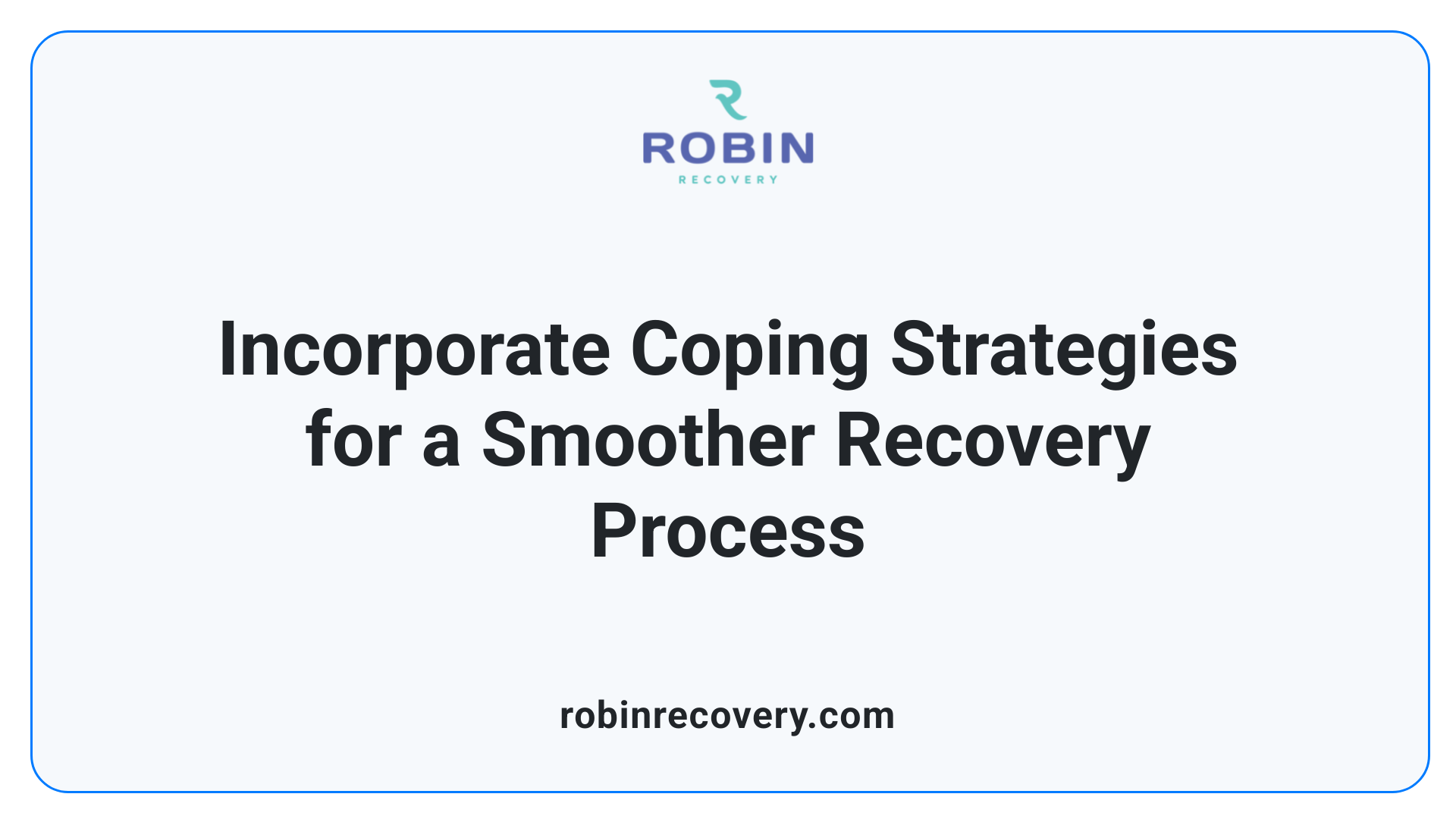
Practical Exercises for Emotional Regulation
Incorporating emotional regulation techniques into daily activities can significantly ease tension and frustration during recovery. Here are some effective practices:
- Deep Breathing: Spend a few minutes each day focusing on your breath. Inhale deeply, hold for a moment, and exhale slowly. This can calm your mind and body.
- Mindfulness Meditation: Try to dedicate time daily to mindfulness practices. This helps in staying present and can reduce feelings of anger and anxiety.
- Physical Exercise: Engage in regular activities like running, yoga, or any sport you enjoy. Physical exertion releases endorphins, improving your mood.
Incorporating Healthy Habits
Adopting healthy habits can create a more supportive environment for your recovery.
- Establish a Routine: Regular daily schedules can provide stability, reducing feelings of being overwhelmed.
- Connect with Others: Build a support network. Join support groups or meet friends to share experiences. Discussing feelings can help alleviate anger and frustration.
- Artistic Expression: Engage in creative activities like drawing or writing to channel your emotions constructively.
Implementing these strategies can foster a healthier emotional landscape and contribute to long-term recovery.
Embracing Healthy Emotional Management for Recovery Success
Understanding and managing anger and frustration are critical components of successful addiction recovery. By implementing healthy coping strategies, seeking professional support, and remaining open to personal growth, individuals can navigate their emotional landscape more effectively. Recognizing the impact of unresolved anger and frustration can empower you to create a more positive, constructive pathway towards long-term sobriety and emotional wellbeing. Recovery is an ongoing journey, and learning to manage your emotions is a powerful step toward lasting change.
References
- National Helpline for Mental Health, Drug, Alcohol Issues - SAMHSA
- Coping with Anger in Addiction Recovery
- Anger Management in Recovery
- Anger Management in Recovery - Free by the Sea - Washington
- 5 Anger Management Tips for Recovery - Ashley Addiction Treatment
- How do I deal with anger in recovery? - MHA Screening
- Managing Anger in Addiction Recovery
- Coping with Anger in Recovery - NorthStar Transitions
